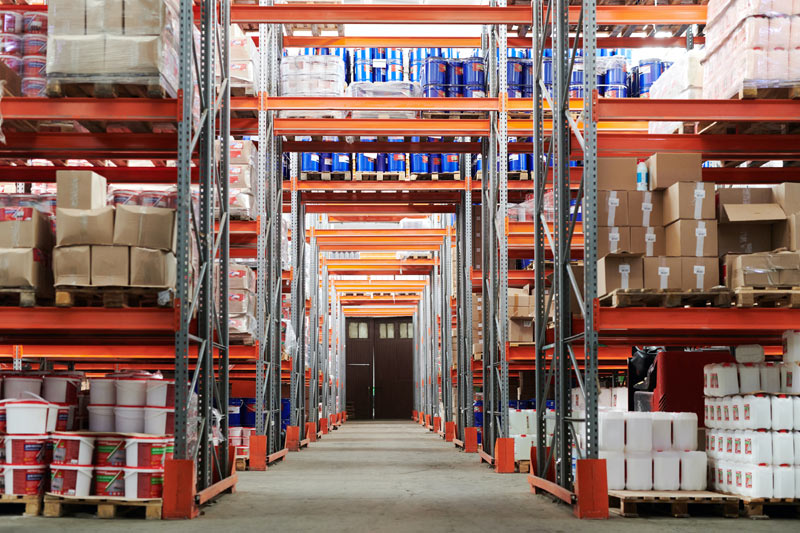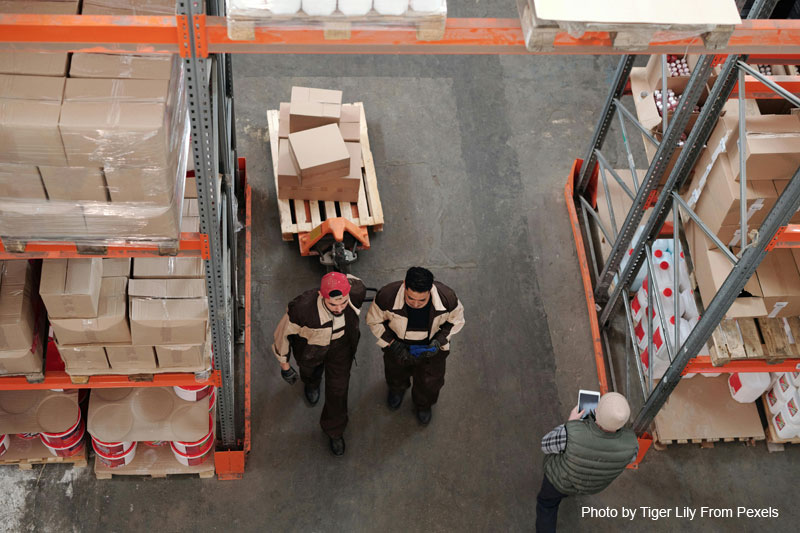In an increasingly digital retail environment, the term warehousing services are growing in popularity. However, many people may not understand the full scope of what warehousing services offer. This article provides a brief overview of the range of activities that warehousing service providers may offer.
Warehousing addresses the inventory and storage of many things, such as raw materials and finished products. It is an essential piece of the supply chain of goods in this nation and around the globe. Depending upon the industry or product, warehousing can be critical in getting orders delivered to customers on time.
When you hear the term warehouse, people often think of the old image of a large storage building. While these buildings are still critical in warehousing solutions, the process of warehousing has evolved in the digital age.
The most common function of warehousing is to store physical goods before they are distributed to another destination, whether it’s a different storage facility or the customer. Many new businesses can warehouse small amounts of inventory. But at a certain point in growth, the company will likely outgrow its existing storage solutions. This scenario is where warehousing services become critical.
Storage Space for Growing Businesses
Many growing businesses need to rent storage space to hold inventory until an order is placed. With e-commerce-based companies, the product may be held at the warehouse until the point of sale, when it is shipped directly to the consumer.
In this business model, the product never enters an actual retail outlet. Traditional in-person retail locations often require warehousing services, too, though. Warehousing services can be used to store goods temporarily until they are needed at the store itself.
Common Aspects of Warehousing Services
Because of the varying needs of many businesses, it’s a good idea to become familiar with the crucial aspects and benefits of working with a warehousing service. Commonly, these include:
- Contract Warehousing: This model is a perfect solution for companies with a customized and regional distribution program. A business can establish a contract for warehousing and begin delivering goods to customers almost immediately. Depending upon the company’s needs, contracts can extend for years or be as short as weeks. This service is popular for new and growing businesses without the financial resources to build dedicated warehouses.
- Technology: Warehousing services rely on an intricate web of reliable and interoperable technologies to ensure the right products are delivered to the right customers. This process includes Integrated Warehouse Management Systems, RF scanning capabilities, online inventory tracking, inventory control systems, and shipping systems. The right technologies can make this process seamless and reliable.
- Inventory Tracking, Management, and Control: Inventory management is essential in business. Too much or too little inventory can be costly for business owners. Warehousing services can provide business owners with critical information to optimize inventory and reduce shipping errors.
- Order Processing: Order fulfillment includes processing, packaging, labeling, and shipping the order. Warehousing services can handle an entire distribution process, beginning with inbound order management, including vendor management, and concluding with outbound order fulfillment.
- Quality Control: Accidental overages or mis-ships can occur without the proper mechanisms in place to ensure that every package is appropriately packed, weighed, and measured to meet the specifications of the job at hand.
- Cross-Docking: Cross-docking programs can reduce warehousing costs and contribute to substantial savings. In simple terms, cross-docking allows clients to route products from one or multiple sites to a centrally-located distribution center. It involves the logistical planning of receiving goods from multiple manufacturers, repacking the product, and shipping it to the customer. When implemented correctly, cross-docking services can reduce labor costs, cut down on the space requirements for warehousing, and reduce the lead time from the order to delivery to the customer.
- Import Deconsolidation: For some companies, it’s beneficial to base allocate distribution centers based on customer demand and timing rather than locating them in the country of origin. This benefit can provide the company with increased flexibility to meet product demand and customer expectations.
The process of delivering warehousing services relies on a tightly choreographed and well-managed system that includes technology and oversight. Knitting these elements together can result in reliable delivery of products – and substantial cost savings for the company. These savings can often give startup and growing companies a competitive edge by building savings into a lean budget.
Warehousing services are required for all companies that sell products, which means you can’t trust anyone to uphold your company values. Instead, you need to partner with a premier warehousing service provider. To learn more about getting the best warehousing services available, contact Dawson Logistics today.
Dawson Logistics provides quality warehousing services to businesses of all sizes, handling a wide variety of products. Our team can assist you in creating a warehousing and fulfillment plan to meet your needs at every stage of your business.


